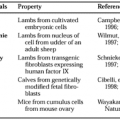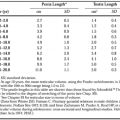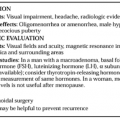TREATMENT OF TESTICULAR DYSFUNCTION IN SYSTEMIC DISEASE
The testicular suppression accompanying chronic systemic disorders may be reversible with recovery or correction by organ transplantation. Drugs used for managing the disorder may also contribute to the reduced testicular function.1 In patients with stable underlying disorders, androgen therapy may be effective in improving virility (see Chap. 119). The possibility that androgen deficiency contributes to the overall disease state has been investigated. For example, controlled trials of androgen therapy have been conducted in men with cirrhosis. While gynecomastia was reduced, there was no effect on survival or sexual function.142,143 Gynecomastia can be treated by plastic surgery if necessary.143a In hemochromatosis with gonadotropin deficiency, spermatogenesis usually can be reestablished with hCG, but occasionally additional FSH is needed (see Chap. 115). Patients with hyperprolactinemia may respond to dopaminergic agents (see Chap. 13). There are case reports showing that patients with gonadotropin suppression from dietary restriction and exercise or illness respond to long-term clomiphene treatment.144,145 However, a controlled trial of clomiphene for secondary hypogonadism in men did not demonstrate an improvement in sexual function although gondadotropin and testosterone levels were increased.119
Stay updated, free articles. Join our Telegram channel

Full access? Get Clinical Tree






